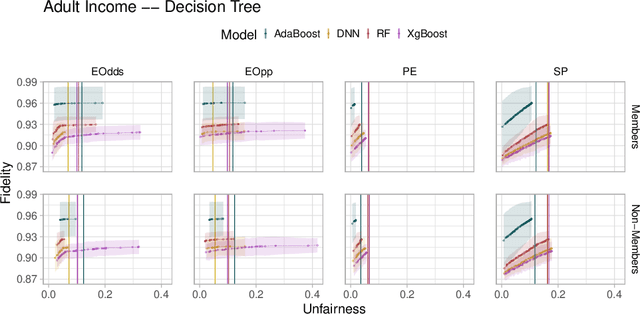Characterizing the risk of fairwashing
Paper and Code
Jun 14, 2021



Fairwashing refers to the risk that an unfair black-box model can be explained by a fairer model through post-hoc explanations' manipulation. However, to realize this, the post-hoc explanation model must produce different predictions than the original black-box on some inputs, leading to a decrease in the fidelity imposed by the difference in unfairness. In this paper, our main objective is to characterize the risk of fairwashing attacks, in particular by investigating the fidelity-unfairness trade-off. First, we demonstrate through an in-depth empirical study on black-box models trained on several real-world datasets and for several statistical notions of fairness that it is possible to build high-fidelity explanation models with low unfairness. For instance, we find that fairwashed explanation models can exhibit up to $99.20\%$ fidelity to the black-box models they explain while being $50\%$ less unfair. These results suggest that fidelity alone should not be used as a proxy for the quality of black-box explanations. Second, we show that fairwashed explanation models can generalize beyond the suing group (\emph{i.e.}, data points that are being explained), which will only worsen as more stable fairness methods get developed. Finally, we demonstrate that fairwashing attacks can transfer across black-box models, meaning that other black-box models can perform fairwashing without explicitly using their predictions.
 Add to Chrome
Add to Chrome Add to Firefox
Add to Firefox Add to Edge
Add to Edge